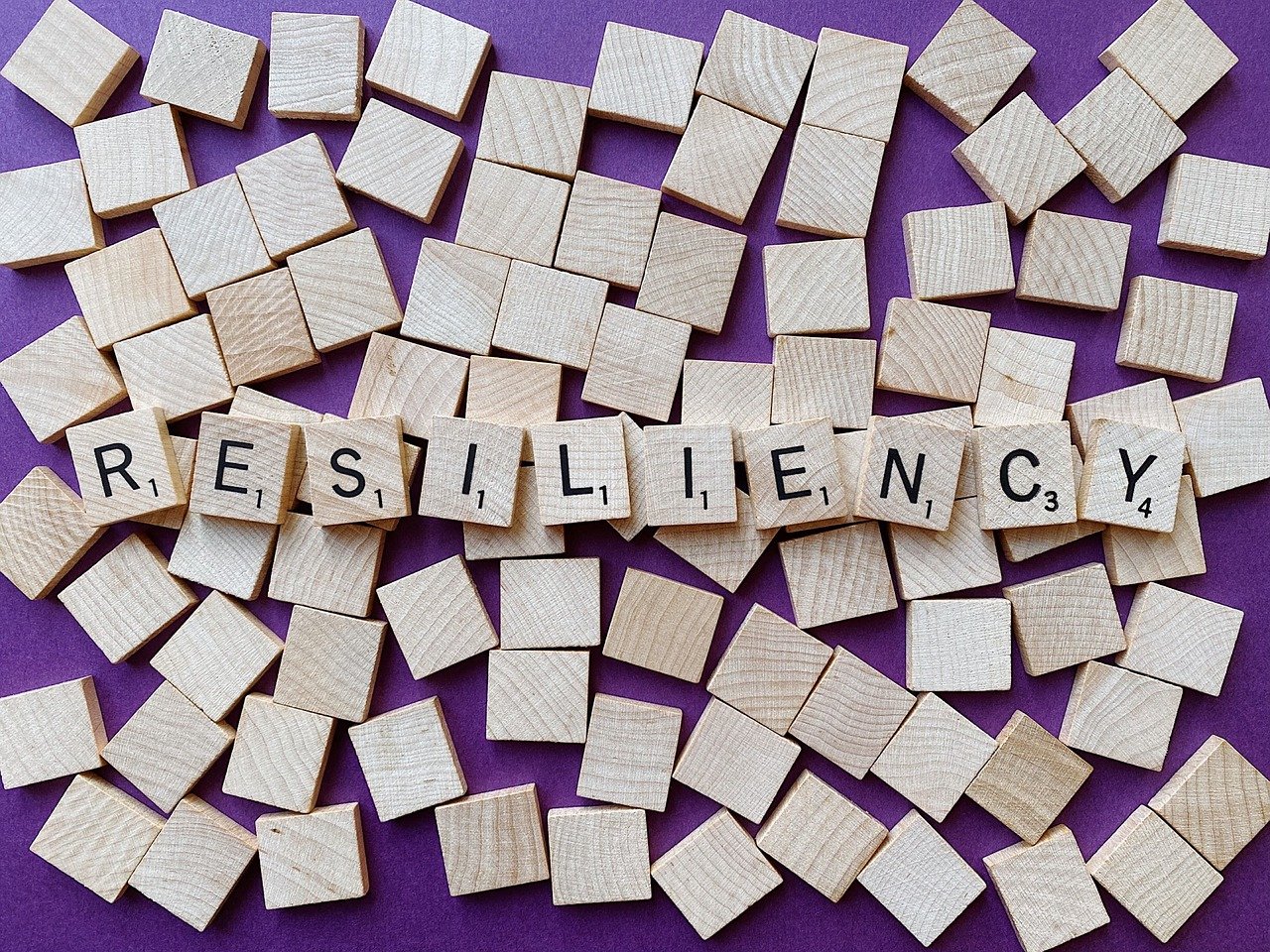How to Develop Resilience to Face Life's Challenges?
Life can often feel like a rollercoaster ride, filled with unexpected twists and turns. One moment, you're soaring high, and the next, you're plummeting into a steep drop. But what if you could learn to ride those waves with grace? Developing resilience is like building an emotional muscle that helps you bounce back from life's challenges. In this article, we will explore effective strategies and techniques to cultivate resilience, enabling you to navigate through tough times with strength and adaptability. So, grab your metaphorical life jacket, and let's dive into the ocean of resilience!
Resilience is more than just a buzzword; it’s the ability to bounce back from adversity and maintain a sense of well-being in the face of difficulties. Think of it as your psychological shield, protecting you from the harsh winds of life's storms. It's important because life is full of challenges, whether they are personal, professional, or emotional. By understanding the core traits that contribute to a resilient mindset, you can equip yourself to handle whatever comes your way. Some key psychological traits of resilience include:
- Emotional Awareness: Recognizing and understanding your emotions.
- Optimism: Maintaining a hopeful outlook even during tough times.
- Problem-Solving Skills: Ability to find solutions in challenging situations.
Your mindset plays a crucial role in how you approach challenges. A positive mindset can transform your perspective, allowing you to see setbacks as opportunities for growth rather than insurmountable obstacles. Adopting a growth mindset is essential; it’s the belief that you can develop your abilities through dedication and hard work. This perspective fosters resilience because it encourages you to view challenges as a natural part of life, rather than a reflection of your worth.
So, how do you cultivate this growth mindset? Here are some practical strategies to consider:
- Embrace Challenges: Instead of shying away from difficulties, welcome them as chances to learn and grow.
- Learn from Criticism: View constructive feedback as an opportunity for improvement rather than a personal attack.
- Celebrate Effort Over Outcome: Focus on the process and the hard work you put in, rather than just the results.
Negative self-talk can be a major roadblock on your journey to resilience. It’s like a pesky mosquito buzzing around your head, distracting you from your goals. To combat this, start by recognizing these detrimental thoughts. When you catch yourself thinking, “I can’t do this,” challenge that notion. Replace it with something more constructive, like, “I will try my best and learn from the experience.” This shift in internal dialogue can significantly boost your resilience.
Another essential aspect of building resilience is setting realistic goals. Imagine trying to climb a mountain without a clear path; it can be overwhelming! By breaking down your goals into smaller, achievable steps, you create a roadmap for success. Start with short-term goals that lead to long-term achievements. This incremental approach not only fosters a resilient spirit but also gives you a sense of accomplishment along the way.
Social support is like the safety net that catches you when you fall. Nurturing relationships with friends, family, and community members can significantly enhance your resilience. During tough times, don’t hesitate to reach out for support. Talking about your feelings and experiences can lighten your emotional load and provide new perspectives. Remember, it’s okay to lean on others; we’re all in this together!
Self-care is not just a trendy term; it’s a vital component of resilience. Taking care of your emotional and physical well-being equips you to handle life's challenges more effectively. Whether it’s indulging in a hobby, exercising, or simply taking time to relax, self-care allows you to recharge and regain focus. Prioritize activities that make you feel good and help you unwind.
Mindfulness and meditation are powerful tools for enhancing resilience. These practices help you manage stress and increase self-awareness. By taking a few moments each day to meditate or practice mindfulness, you can cultivate a sense of calm amidst chaos. It’s like hitting the pause button on life, allowing you to gather your thoughts and emotions before diving back into the fray.
Maintaining physical health is crucial for resilience. Think of your body as a car; it needs regular maintenance to run smoothly. Exercise, nutritious food, and adequate sleep all contribute to your mental well-being. Research shows that a healthy body supports a healthy mind, making it easier to cope with challenges. So, fuel your body with what it needs to thrive!
Q1: Can anyone develop resilience?
A1: Absolutely! Resilience can be cultivated through practice and commitment, regardless of your background or experiences.
Q2: How long does it take to become more resilient?
A2: Developing resilience is a journey, not a destination. With consistent effort, you can start noticing changes in your mindset and coping strategies over time.
Q3: What if I feel overwhelmed and unable to cope?
A3: It's okay to feel overwhelmed. Seeking support from friends, family, or professionals can provide the help you need to regain your footing.

Understanding Resilience
This article explores effective strategies and techniques to cultivate resilience, enabling individuals to navigate life's challenges with strength and adaptability. Discover practical tips and insights to enhance your resilience.
Resilience is more than just a buzzword; it's a vital skill that allows us to bounce back from adversity. Think of it as a rubber band—when stretched, it may feel uncomfortable, but it snaps back into shape. This ability to recover from setbacks is crucial in our fast-paced, often unpredictable lives. Resilience isn't about avoiding stress or hardship; rather, it's about facing challenges head-on and adapting to them. It’s the difference between feeling overwhelmed and feeling empowered when life throws you a curveball.
In essence, resilience involves a combination of mental, emotional, and behavioral flexibility. Individuals who are resilient tend to exhibit certain psychological traits, such as:
- Optimism: The ability to maintain a positive outlook, even in tough situations.
- Emotional Awareness: Recognizing and understanding your emotions and those of others.
- Problem-Solving Skills: The capacity to find solutions to challenges, rather than feeling defeated.
- Self-Efficacy: A belief in your ability to influence events in your life.
Understanding these traits can help you identify areas for personal growth. For example, if you often find yourself feeling hopeless during difficult times, you might want to work on cultivating a more optimistic mindset. It’s important to realize that resilience is not a fixed trait; it can be developed and strengthened over time. Just like building muscle, it requires practice and commitment.
Moreover, resilience plays a crucial role not just in overcoming personal challenges, but also in enhancing our overall well-being. Studies have shown that resilient individuals tend to experience lower levels of anxiety and depression. They are also better equipped to handle stress, leading to improved physical health. In fact, resilience can be seen as a protective factor against mental health issues, allowing individuals to navigate life's storms with grace.
In summary, understanding resilience is the first step towards developing it. By recognizing its definition, importance, and the psychological traits that underlie a resilient mindset, you can begin your journey towards becoming more resilient. Remember, it's not about avoiding the tough times; it's about learning to dance in the rain!
A positive mindset is crucial for resilience. Here, we discuss how adopting a growth mindset can transform your approach to challenges and setbacks, fostering a more resilient attitude.
Learn practical strategies to develop a growth mindset, including embracing challenges, learning from criticism, and celebrating effort over outcome, which can significantly enhance your resilience.
Negative self-talk can undermine resilience. This section offers techniques to recognize and combat these detrimental thoughts, promoting a more positive internal dialogue.
Setting achievable goals is essential for building resilience. Here, we explore how to create realistic, incremental goals that encourage progress and foster a resilient spirit.
Social support plays a vital role in resilience. This section highlights the importance of nurturing relationships and seeking support from friends, family, and community during tough times.
Self-care is integral to resilience. Explore various self-care practices that can enhance your emotional and physical well-being, equipping you to handle life's challenges more effectively.
Mindfulness and meditation are powerful tools for resilience. This part discusses how these practices can help manage stress, increase self-awareness, and promote emotional regulation.
Maintaining physical health is crucial for resilience. Here, we examine the connection between physical fitness, nutrition, and mental well-being, emphasizing their roles in building resilience.
Q1: Can anyone become more resilient?
A1: Absolutely! Resilience is a skill that can be developed through practice and commitment.
Q2: What are some quick ways to boost resilience?
A2: Start by cultivating a positive mindset, setting realistic goals, and building a strong support network.
Q3: How does physical health impact resilience?
A3: Good physical health improves mental well-being, making it easier to cope with stress and challenges.

The Role of Mindset
When it comes to facing life's challenges, your mindset can be your greatest ally or your worst enemy. Mindset is essentially the lens through which you view the world and your experiences. It shapes your thoughts, influences your actions, and ultimately determines how you respond to adversity. Have you ever noticed how two people can face the same setback but react in completely different ways? That’s the power of mindset at play!
Adopting a positive mindset is crucial for resilience. A positive mindset allows you to see challenges as opportunities for growth rather than insurmountable obstacles. This shift in perspective can transform your approach to difficulties, encouraging you to tackle them head-on. Think of your mindset as a garden; if you nurture it with positivity, it will flourish, but if you let negativity take root, it can become overrun with weeds.
One of the key concepts that can help you develop a resilient mindset is the idea of a growth mindset. Coined by psychologist Carol Dweck, this term refers to the belief that your abilities and intelligence can be developed through dedication and hard work. Embracing a growth mindset means you view failures as stepping stones to success, rather than as a reflection of your worth. Imagine treating every setback as a lesson learned, a chance to regroup and come back stronger. Isn’t that a refreshing way to look at challenges?
To cultivate a growth mindset, consider these practical strategies:
- Embrace challenges: Instead of avoiding difficult tasks, lean into them. Challenge yourself to learn something new or tackle a problem that seems daunting.
- Learn from criticism: Feedback can be a valuable tool for growth. Rather than taking it personally, view it as constructive input that can help you improve.
- Celebrate effort over outcome: Recognize and reward the effort you put into tasks, regardless of the end result. This reinforces the idea that hard work leads to growth.
However, it’s important to note that developing a resilient mindset isn’t just about thinking positively; it’s also about overcoming negative self-talk. We all have that little voice in our heads that can be overly critical or discouraging. This negative self-talk can undermine your confidence and resilience. To combat this, practice recognizing when those thoughts arise and challenge them with evidence of your capabilities. Ask yourself: “Is this thought true? What would I tell a friend in this situation?” By reframing your internal dialogue, you can foster a more positive and resilient mindset.
Setting realistic goals also plays a vital role in shaping your mindset. When you set achievable, incremental goals, you create a roadmap for success that encourages progress and builds confidence. Think of it like climbing a mountain; you wouldn’t try to leap to the summit in one bound. Instead, you’d take it step by step, celebrating each milestone along the way. This approach not only helps you stay motivated but also reinforces the belief that you can overcome challenges.
In conclusion, your mindset is a powerful tool in your resilience toolkit. By adopting a growth mindset, overcoming negative self-talk, and setting realistic goals, you can cultivate a mental landscape that thrives in the face of adversity. Remember, it’s not about avoiding challenges; it’s about developing the strength to face them with confidence and grace. So, what mindset will you choose to nurture today?

Cultivating a Growth Mindset
Embracing a growth mindset is like unlocking a treasure chest of potential within yourself. It’s the belief that you can develop your abilities through dedication and hard work. Imagine facing challenges not as insurmountable obstacles but as opportunities for growth. This shift in perspective can significantly enhance your resilience, allowing you to bounce back from setbacks with renewed vigor. So, how do you cultivate this transformative mindset?
First and foremost, embracing challenges is key. Instead of shying away from difficult tasks, view them as chances to learn and grow. For instance, if you find yourself struggling with a project at work, rather than feeling defeated, ask yourself: "What can I learn from this experience?" This approach not only builds resilience but also fosters a sense of accomplishment when you overcome these challenges.
Another vital aspect is learning from criticism. It’s easy to take feedback personally, but what if you viewed it as constructive advice instead? By actively seeking feedback and using it to improve, you develop a more robust skill set and a resilient mindset. Remember, every piece of criticism is a stepping stone toward personal growth.
Moreover, celebrating effort over outcome can significantly bolster your resilience. When you focus on the effort you put into a task rather than just the end result, you cultivate a sense of pride in your work. This mindset encourages you to keep pushing forward, even when the results aren’t as expected. Think of it like running a marathon: it’s not just about crossing the finish line but also about the training, perseverance, and determination that got you there.
To help you in this journey, here are some practical strategies to cultivate a growth mindset:
- Reflect on Your Experiences: Take time to think about past challenges and what you learned from them.
- Surround Yourself with Growth-Minded People: Engage with individuals who inspire you to improve and grow.
- Set Learning Goals: Instead of focusing solely on achievement, set goals that emphasize learning and development.
In conclusion, cultivating a growth mindset is a continuous journey that requires patience and practice. By embracing challenges, learning from feedback, and celebrating effort, you can build a resilient spirit that not only helps you face life’s challenges but also empowers you to thrive. Remember, every setback is just a setup for a comeback!
Q: What is a growth mindset?
A: A growth mindset is the belief that abilities and intelligence can be developed through dedication and hard work.
Q: How can I develop a growth mindset?
A: You can develop a growth mindset by embracing challenges, learning from criticism, and focusing on effort rather than just outcomes.
Q: Why is a growth mindset important for resilience?
A: A growth mindset allows you to view setbacks as opportunities for learning, which enhances your ability to bounce back from adversity.

Overcoming Negative Self-Talk
Negative self-talk can be like a pesky fly buzzing around your head, constantly reminding you of your flaws and failures. It's that inner critic that seems to have a megaphone, amplifying doubts and fears. But here's the good news: you can silence that critic! Overcoming negative self-talk is not just about changing the words you say to yourself; it’s about transforming your entire mindset. So, how do we go about doing this?
First, it's essential to recognize when negative self-talk creeps in. This awareness is the first step towards change. Think of it as shining a light on the shadows in your mind. Once you identify these thoughts, you can challenge them. For example, if you catch yourself thinking, "I always mess things up," try countering that with, "I’ve made mistakes before, but I’ve also succeeded." This simple shift can make a world of difference!
Another effective strategy is to reframe your thoughts. Instead of saying, "I can't handle this," you might say, "This is tough, but I can take it one step at a time." This reframing not only reduces the weight of the challenge but also empowers you to take action. It’s like looking at a cloudy sky and reminding yourself that the sun is still shining behind those clouds.
To further combat negative self-talk, consider keeping a gratitude journal. Each day, jot down a few things you appreciate about yourself or your life. This practice can help shift your focus from what’s wrong to what’s right. Over time, you’ll build a mental library of positive affirmations that can counteract those pesky negative thoughts.
Lastly, surround yourself with positivity. Engage with people who uplift you and encourage your growth. Sometimes, the best antidote to negative self-talk is a supportive friend or family member who can remind you of your strengths. Remember, it’s okay to seek help; we’re all in this together!
In conclusion, overcoming negative self-talk is a journey, not a destination. It requires patience, practice, and a willingness to change. But with these strategies in your toolkit, you can reclaim your inner dialogue and cultivate a more resilient mindset.
- What is negative self-talk? Negative self-talk refers to the inner dialogue that is critical, pessimistic, or self-defeating. It can undermine confidence and lead to anxiety and depression.
- How can I recognize negative self-talk? Pay attention to your thoughts when facing challenges. If you notice patterns of self-criticism or doubt, you may be engaging in negative self-talk.
- Can negative self-talk be changed? Yes! With practice and the right strategies, you can shift your internal dialogue to be more positive and supportive.
- How long does it take to overcome negative self-talk? The time it takes varies for each person. With consistent practice, you may start to notice changes in your thought patterns within a few weeks.

Setting Realistic Goals
Setting realistic goals is a fundamental step in building resilience. Think of it as laying a solid foundation for a house; without it, everything else can crumble under pressure. When we set goals that are achievable, we create a pathway for progress, allowing ourselves to experience small victories that boost our confidence. Instead of overwhelming ourselves with lofty ambitions that may lead to frustration, we can focus on incremental steps that build towards our larger dreams.
So, how do we go about setting these realistic goals? First, it’s essential to be clear about what you want to achieve. This clarity acts like a compass, guiding you through the stormy seas of life’s challenges. For instance, if your goal is to improve your physical health, instead of saying, "I want to lose 20 pounds," consider breaking it down into smaller, more manageable targets, such as "I will exercise for 30 minutes three times a week." This way, you’re not just aiming for a distant target; you’re creating a roadmap that leads you there.
Additionally, it’s crucial to incorporate a timeline into your goal-setting process. Having a specific timeframe adds a sense of urgency and helps you stay focused. You might set a goal to read one book a month, which not only enhances your knowledge but also gives you something to look forward to. Remember, the key is to celebrate these small milestones along the way. Each time you hit a target, no matter how small, take a moment to acknowledge your achievement. This practice reinforces your resilience, making you more equipped to face future challenges.
Moreover, don’t hesitate to adjust your goals as needed. Life is unpredictable, and sometimes the path we set out on may change. Being flexible and open to reassessing your objectives is a sign of strength. If you find that a particular goal is too ambitious or no longer aligns with your priorities, modify it. This adaptability not only prevents feelings of failure but also encourages a growth mindset, which is essential for resilience.
Here’s a quick summary of how to set realistic goals:
- Be Specific: Clearly define what you want to achieve.
- Break It Down: Divide larger goals into smaller, manageable steps.
- Set a Timeline: Establish deadlines to create a sense of urgency.
- Celebrate Success: Acknowledge and reward yourself for achieving milestones.
- Stay Flexible: Be willing to adjust your goals as life changes.
In conclusion, setting realistic goals is not just about achieving outcomes; it’s about fostering a resilient mindset that empowers you to navigate life’s ups and downs. By focusing on attainable objectives, you’re not just building a bridge to your dreams, but also strengthening your ability to bounce back from setbacks. Remember, resilience is a journey, and every step you take towards your goals is a step towards becoming a stronger, more adaptable version of yourself.
Q: What if I fail to meet my goals?
A: Failure is a part of the journey. It's essential to view setbacks as learning opportunities rather than roadblocks. Reflect on what went wrong, adjust your approach, and keep moving forward.
Q: How can I stay motivated to achieve my goals?
A: Find what inspires you! Surround yourself with supportive people, visualize your success, and remind yourself of the reasons behind your goals. Keeping a journal can also help track your progress and maintain motivation.
Q: Is it okay to change my goals?
A: Absolutely! Life is dynamic, and your goals should reflect your current circumstances and aspirations. Adjusting your goals is a sign of growth and adaptability.

Building a Support Network
When life throws challenges our way, having a strong support network can make all the difference. Think of it like a safety net; when you stumble, it’s the people around you who catch you before you fall. Building a support network isn't just about having friends; it's about nurturing relationships that provide emotional, mental, and sometimes even physical support. Who wouldn’t want a group of cheerleaders in their corner during tough times, right?
First off, it’s important to recognize that a support network can come in many forms. It can include family, friends, coworkers, or even community groups. Each of these relationships serves a unique purpose. For instance, family might provide unconditional love and understanding, while friends can offer a fresh perspective or a much-needed laugh. The key is to surround yourself with people who uplift you and share your values.
But how do you go about building this network? Here are a few practical steps:
- Identify Your Needs: What kind of support do you need? Emotional? Practical? Understanding? Knowing this will help you reach out to the right people.
- Reach Out: Don’t be afraid to initiate conversations. Whether it's a simple text or a coffee catch-up, showing you care strengthens bonds.
- Be Present: Just as you seek support, be there for others. This reciprocity builds trust and deepens relationships.
Moreover, don't underestimate the power of community. Joining clubs, attending workshops, or participating in local events can help you meet like-minded individuals who might just become your next support pillars. Remember, it’s not just about quantity; quality matters more. A few close, reliable friends can be more beneficial than a large group of acquaintances.
And let’s not forget about the digital age we live in! Online communities can provide immense support, especially if you’re looking for people who understand your specific challenges. Whether it's a forum, social media group, or a virtual meetup, these platforms can connect you with individuals who can share their experiences and advice.
In essence, building a support network is an ongoing process. It requires effort, vulnerability, and a willingness to connect. But the rewards are worth it. A solid support network not only helps you navigate life's challenges but also enriches your life with joy, laughter, and shared experiences. So, take that first step today—reach out, connect, and watch your resilience grow!
1. What is a support network?
A support network is a group of people who provide emotional, mental, and practical support during challenging times. This can include family, friends, coworkers, and community members.
2. How can I build my support network?
Start by identifying the types of support you need, reach out to friends and family, and consider joining community groups or online forums to meet new people.
3. Why is a support network important for resilience?
A support network provides encouragement, different perspectives, and practical help, all of which can enhance your ability to cope with stress and adversity.
4. Can I rely on online communities for support?
Absolutely! Online communities can connect you with individuals who share similar experiences and challenges, providing valuable support and understanding.

Practicing Self-Care
In the hustle and bustle of everyday life, it's easy to forget about the most important person in your life: you. Practicing self-care is not just a luxury; it's a necessity for building resilience. Think of self-care as your emotional first-aid kit. When life throws challenges your way, having this kit stocked and ready can make all the difference. So, what exactly does self-care entail, and how can it empower you to face life's hurdles with grace and strength?
First and foremost, self-care is about recognizing your own needs and taking the time to meet them. This can be as simple as indulging in a warm bath after a long day or as involved as setting aside time each week for a personal hobby. The key is to make self-care a priority rather than an afterthought. When you invest in yourself, you’re essentially filling your resilience reservoir, which can help you navigate through tough times more effectively.
Moreover, self-care encompasses a wide range of practices that nurture your mental, emotional, and physical well-being. Here are a few essential areas to consider:
- Emotional Self-Care: This involves recognizing your feelings and giving yourself permission to feel them. Whether it's journaling, talking to a friend, or simply allowing yourself to cry, emotional self-care is about honoring your emotional landscape.
- Physical Self-Care: Regular exercise, a balanced diet, and adequate sleep are crucial. Physical health directly impacts your mental health; when you feel good physically, you're more equipped to handle stress.
- Social Self-Care: Surround yourself with supportive people. Nurturing relationships can provide a safety net during challenging times. Don't hesitate to reach out for help or simply to share a laugh!
Now, you might be wondering how to incorporate self-care into your busy life. It starts with setting boundaries. Learn to say no when you need to and protect your time. Additionally, consider creating a self-care schedule. Just like you would schedule a meeting or a doctor's appointment, mark out time for self-care in your calendar. This can be a daily ritual, or a weekly retreat—whatever works best for you!
Another crucial aspect of self-care is mindfulness. Engaging in mindfulness practices can help you stay grounded and aware of your needs. This could be as simple as taking a few deep breaths before reacting to a stressful situation or practicing meditation to clear your mind. The goal is to cultivate a sense of awareness that allows you to respond to life's challenges rather than react impulsively.
Lastly, remember that self-care is not a one-size-fits-all approach. What works for one person might not work for another. It's essential to explore different practices and find what resonates with you. Whether it's painting, hiking, or curling up with a good book, the important thing is to engage in activities that bring you joy and peace.
In conclusion, practicing self-care is a vital strategy for enhancing your resilience. By prioritizing your emotional, physical, and social well-being, you equip yourself to face challenges with a renewed sense of strength. So, take a moment today to reflect on what self-care means to you and commit to making it a part of your daily routine. After all, you deserve it!
Q: What is self-care?
A: Self-care refers to the intentional actions you take to improve your physical, mental, and emotional well-being.
Q: How can I practice self-care if I'm busy?
A: Start by setting boundaries and scheduling time for self-care activities. Even small moments of self-care can make a significant difference.
Q: Is self-care selfish?
A: No, self-care is essential for maintaining your health and well-being. Taking care of yourself enables you to be more present and supportive for others.
Q: Can self-care improve my resilience?
A: Absolutely! By nurturing your well-being, you build a strong foundation that helps you cope with life's challenges more effectively.

Mindfulness and Meditation
In today's fast-paced world, the practice of mindfulness and meditation has emerged as a beacon of hope for those seeking to enhance their resilience. But what exactly do these terms mean? Mindfulness is the art of being fully present in the moment, while meditation is a structured practice that often involves focusing the mind to achieve mental clarity and emotional calm. Together, they create a powerful toolkit for navigating life's unpredictable challenges.
Imagine standing at the edge of a turbulent ocean, waves crashing all around you. In this scenario, mindfulness acts as your lifeline, helping you stay grounded amidst the chaos. By focusing on your breath and tuning into your thoughts and feelings without judgment, you can create a sense of calm that allows you to face adversity with clarity. Research has shown that individuals who practice mindfulness regularly report lower levels of stress and anxiety, which is essential for cultivating resilience.
Meditation complements this practice by providing a structured way to foster that same sense of calm and presence. Whether it's a few minutes of deep breathing or a longer session of guided meditation, taking time to sit quietly can help you process emotions and gain perspective. Studies indicate that even short daily sessions can significantly improve your emotional regulation, making it easier to bounce back from setbacks.
Here are some practical ways to incorporate mindfulness and meditation into your daily routine:
- Start Small: Begin with just five minutes a day. Gradually increase the time as you become more comfortable with the practice.
- Use Guided Meditations: There are numerous apps and online resources available that can guide you through meditation techniques tailored for resilience.
- Practice Mindful Breathing: Whenever you feel overwhelmed, take a moment to focus on your breath. Inhale deeply, hold for a few seconds, and exhale slowly.
- Engage in Mindful Activities: Whether it's eating, walking, or even washing dishes, try to be fully present in the activity. Notice the sensations, smells, and sounds around you.
Incorporating mindfulness and meditation into your life doesn't have to be complicated. Think of it as a daily mental tune-up. Just as you wouldn't skip a workout if you wanted to stay physically fit, neglecting your mental health can lead to burnout and decreased resilience. By committing to these practices, you're investing in your emotional well-being, equipping yourself with the tools needed to face whatever life throws your way.
So, why not give it a try? Set aside a few minutes each day to practice mindfulness or meditation. You might be surprised at how these simple yet powerful techniques can shift your perspective and enhance your resilience, allowing you to navigate life's challenges with grace and strength.
- What is the difference between mindfulness and meditation? Mindfulness is the practice of being present and aware in the moment, while meditation is a technique used to develop that awareness.
- How long should I meditate each day? Starting with just 5-10 minutes a day can be beneficial. You can gradually increase the duration as you become more comfortable.
- Can mindfulness help with stress management? Absolutely! Mindfulness practices have been shown to reduce stress and improve emotional regulation.
- Do I need any special equipment to practice mindfulness or meditation? No special equipment is necessary. You can practice anywhere, anytime, using just your breath and awareness.

Physical Health and Resilience
When it comes to resilience, the connection between physical health and mental fortitude is undeniable. Think of your body as a finely tuned machine; if one part is out of sync, the whole system can falter. Maintaining good physical health is not just about looking fit; it’s about feeling good and being equipped to tackle life’s inevitable challenges. Regular exercise, a balanced diet, and adequate sleep are the cornerstones of this foundation.
Engaging in regular physical activity releases endorphins, often referred to as the body's natural mood lifters. These chemicals can help combat stress and anxiety, making you more equipped to handle setbacks. Imagine facing a tough situation with a clear mind and a positive outlook—this is the power of physical health. Moreover, studies have shown that individuals who maintain a consistent exercise routine report higher levels of resilience.
Nutrition also plays a critical role in how we respond to stress. A diet rich in fruits, vegetables, whole grains, and lean proteins fuels our bodies and minds. It’s like putting premium fuel in a sports car; it runs better and performs optimally. On the other hand, a diet high in processed foods and sugars can lead to mood swings and decreased energy levels, which can hinder our ability to cope with challenges.
In addition to exercise and diet, sleep is a vital component of physical health. Quality sleep rejuvenates the mind and body, allowing for better emotional regulation. Lack of sleep can lead to irritability and a decreased ability to cope with stress. It’s essential to prioritize sleep as part of a holistic approach to building resilience. Aim for 7-9 hours of restful sleep per night and create a calming bedtime routine to enhance sleep quality.
To illustrate the importance of these physical health components, consider the following table that outlines their contributions to resilience:
| Physical Health Component | Impact on Resilience |
|---|---|
| Regular Exercise | Boosts mood, reduces stress, and improves overall mental clarity. |
| Balanced Diet | Enhances energy levels and stabilizes mood swings. |
| Quality Sleep | Improves emotional regulation and cognitive function. |
In conclusion, prioritizing your physical health is not just a personal choice; it’s a necessary step toward building a resilient mindset. By embracing a lifestyle that includes regular exercise, nutritious eating, and sufficient sleep, you’re not only enhancing your physical well-being but also fortifying your mental strength. So, the next time you face a challenge, remember that your body and mind are interconnected, and taking care of one will inevitably benefit the other.
- What is resilience? Resilience is the ability to bounce back from adversity and adapt to challenging circumstances.
- How does physical health affect mental resilience? Good physical health enhances mood, energy levels, and cognitive function, making it easier to cope with stress.
- Can I build resilience over time? Absolutely! Resilience can be developed through practice, positive thinking, and maintaining physical health.
- What are some quick ways to improve my physical health? Incorporate regular exercise, eat a balanced diet, and ensure you get enough sleep.
Frequently Asked Questions
- What is resilience?
Resilience is the ability to bounce back from adversity, setbacks, and challenges. It's like a rubber band that stretches but doesn't break, allowing you to return to your original shape after being pulled in different directions. Building resilience helps you face life's difficulties with strength and adaptability.
- Why is a positive mindset important for resilience?
A positive mindset is crucial because it shapes how you perceive challenges. When you adopt a growth mindset, you see obstacles as opportunities to learn and grow rather than insurmountable barriers. This shift in perspective can significantly enhance your resilience, allowing you to tackle life's ups and downs with confidence.
- How can I cultivate a growth mindset?
To cultivate a growth mindset, start by embracing challenges instead of avoiding them. Learn from criticism rather than taking it personally, and celebrate your efforts, not just the outcomes. This approach encourages a resilient attitude, making you more adaptable to life's inevitable challenges.
- What are some techniques to overcome negative self-talk?
To combat negative self-talk, first, recognize when these thoughts occur. Challenge them by asking if they're really true or if there's a more positive perspective. Practice replacing negative thoughts with affirmations or constructive feedback to promote a healthier internal dialogue.
- How do I set realistic goals to build resilience?
Setting realistic goals involves breaking down larger objectives into smaller, manageable tasks. This incremental approach allows you to celebrate small victories along the way, fostering a sense of accomplishment and resilience as you progress toward your larger goals.
- Why is building a support network important?
A support network is vital for resilience because it provides emotional and practical assistance during tough times. Surrounding yourself with supportive friends, family, and community can help you navigate challenges more effectively and remind you that you're not alone in your struggles.
- What self-care practices can enhance resilience?
Self-care practices such as regular exercise, healthy eating, and adequate sleep are essential for maintaining emotional and physical well-being. Additionally, engaging in hobbies, spending time in nature, and practicing mindfulness can help recharge your mental batteries, making you more resilient in the face of challenges.
- How do mindfulness and meditation contribute to resilience?
Mindfulness and meditation help manage stress and increase self-awareness, which are crucial for emotional regulation. By practicing these techniques, you can develop a clearer perspective on challenges, allowing you to respond rather than react impulsively, thus enhancing your resilience.
- What is the connection between physical health and resilience?
Physical health has a direct impact on mental well-being. Regular physical activity, proper nutrition, and sufficient rest can improve your mood and energy levels, making you better equipped to handle stress and adversity. A healthy body supports a resilient mind!



















